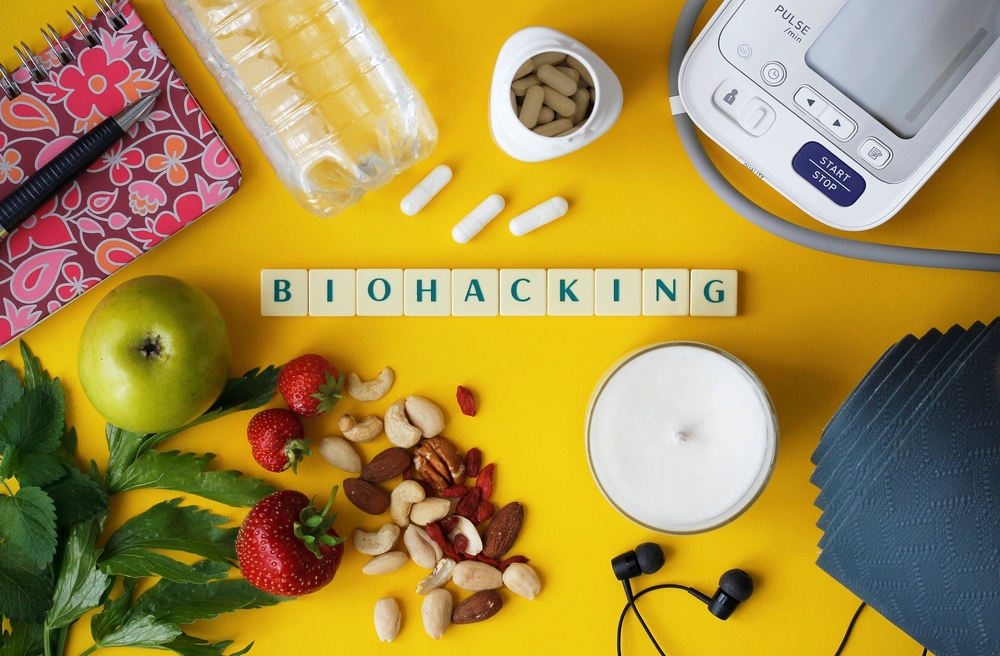
Experts agree that incorporating effective health hacks into daily life can significantly enhance overall well-being and productivity. By implementing simple yet strategic routines, individuals can experience improved mental clarity, increased energy, and better physical health. From morning energy boosters to mindful eating strategies, the key is to identify and adopt practical techniques that cater to unique lifestyles and needs. But what sets the most successful health hacks apart, and how can individuals tailor them to their own lives? A closer look at these strategies reveals surprising benefits that can be life-changing.
Boosting Morning Energy Levels
Boosting morning energy levels often starts with small, consistent changes to daily routines. It’s essential for individuals to establish a wake-up time that allows for a gentle transition from sleep to wakefulness, rather than jolting awake to an alarm.
Exposure to natural light, even on cloudy days, plays a significant role in regulating the body’s circadian rhythms, helping to increase alertness and energy.
A well-structured morning routine should include a balance of physical activity, mindfulness, and nutrition. Engaging in gentle stretches or a short walk can increase blood flow and oxygenation to the brain.
Incorporating a mindfulness practice, such as meditation or deep breathing, can help clear mental fog and set intentions for the day. A nutritious breakfast rich in complex carbohydrates, protein, and healthy fats provides sustained energy and supports overall well-being.
Simple Stress Reduction Techniques
Effective stress management isn’t just about finding a few spare minutes to relax; it’s about incorporating simple techniques into daily life to reduce overall stress levels.
One simple yet powerful technique is deep breathing. By taking slow, deliberate breaths in through the nose and out through the mouth, individuals can calm their nervous system and reduce stress hormones.
Another technique is progressive muscle relaxation, which involves tensing and relaxing different muscle groups to release physical tension. This can be done while sitting or standing, making it easy to incorporate into daily activities.
Mindful movement, such as yoga or tai chi, can also be effective in reducing stress levels. These activities combine physical movement with deep breathing and mental focus to promote relaxation and calmness.
Additionally, setting boundaries and prioritizing tasks can help manage stress. By learning to say “no” and focusing on essential tasks, individuals can reduce feelings of overwhelm and increase productivity.
Improving Mental Clarity
Improving mental clarity often comes down to cutting through the noise and focusing on what’s truly important. In today’s fast-paced world, it’s easy to get bogged down in distractions and lose sight of priorities. To combat this, individuals can implement a few key strategies.
First, they can establish a consistent morning routine that sets a clear tone for the day. This might involve meditation, journaling, or a short exercise routine – anything that helps to quiet the mind and clarify goals.
Additionally, individuals can practice the Pomodoro Technique, which involves working in focused 25-minute increments, followed by a brief break. This technique can help to increase productivity and reduce mental fatigue.
Healthy Meal Prep Ideas
Meal prep is a game-changer for anyone striving to eat healthy, as it allows individuals to plan and prepare nutritious meals in advance. By dedicating a few hours on the weekend to meal prep, individuals can save time during the week and ensure they’re fueling their bodies with wholesome foods.
A great place to start is by planning meals around a few key ingredients, such as lean proteins, whole grains, and a variety of colorful vegetables.
Some healthy meal prep ideas include preparing a batch of overnight oats for breakfast, grilling a week’s worth of chicken or salmon for lunches, and roasting a large tray of vegetables for dinners.
Individuals can also prep healthy snacks, such as trail mix or energy balls, to curb cravings throughout the day. By incorporating a few simple meal prep ideas into their routine, individuals can take control of their diet and make healthier choices.
With a little creativity, meal prep can be a fun and rewarding way to prioritize health and wellness.
Quick Workout Routines
Getting fit doesn’t have to mean spending hours at the gym, as incorporating quick workout routines into one’s schedule can be a great way to boost overall health and fitness. These workouts don’t have to be lengthy or labor-intensive; even short bursts of physical activity can make a significant difference.
For those with busy lives, quick workout routines can be tailored to fit into a lunch break or early morning schedule.
High-Intensity Interval Training (HIIT) is a popular quick workout routine that involves short bursts of intense exercise followed by brief periods of rest. This type of training can be applied to any form of exercise, from running to weightlifting.
Bodyweight exercises like push-ups, squats, and lunges are also great options for quick workouts, as they require minimal equipment and can be done anywhere.
Quick workout routines can be just as effective as longer workouts, as they promote increased heart rate, muscle engagement, and calorie burn.
Better Sleep Habits
Establishing a consistent sleep schedule can pay off in the long run, and it’s easier than you think to develop better sleep habits. By going to bed and waking up at the same time every day, including weekends, you can regulate your body’s internal clock and improve the quality of your sleep.
It’s also crucial to create a sleep-conducive environment, such as keeping your bedroom cool, dark, and quiet, and investing in a comfortable mattress and pillows.
Additionally, developing a relaxing bedtime routine can help signal to your brain that it’s time to sleep. This can include activities like reading a book, taking a warm bath, or practicing gentle stretches.
It’s also important to avoid stimulating activities and electronics before bedtime, as they can interfere with your sleep. By implementing these simple strategies, you can improve the quality of your sleep and wake up feeling rested and refreshed.
Natural Immunity Boosters
Good sleep habits can lay the foundation for overall well-being, but it’s just as important to support the body’s defenses with a strong immune system. One of the most effective ways to do this is by incorporating natural immunity boosters into daily life.
Exercise, for instance, is a powerful immunity booster that can help stimulate the production of white blood cells, which fight off infections.
Probiotics are another essential immunity booster. Found in fermented foods like kimchi, kefir, and yogurt, probiotics help support the body’s natural balance of gut bacteria, which plays a critical role in immune function.
Vitamin D is also crucial for immune system function, and deficiencies in this vitamin have been linked to increased susceptibility to illness. Spending time outdoors, taking vitamin D supplements, or consuming vitamin D-rich foods like fatty fish and egg yolks can help support immune function.
Additionally, herbs like echinacea and garlic have been shown to have immune-boosting properties, making them a great addition to a healthy diet.
Mindful Eating Strategies
By cultivating a deeper awareness of the eating experience, individuals can harness the power of mindful eating to transform their relationship with food. This approach encourages them to pay attention to their physical and emotional sensations while eating, helping them develop a healthier connection with the food they consume.
Mindful eating strategies involve slowing down, savoring each bite, and recognizing the flavors, textures, and aromas of food. Effective mindful eating techniques include eating with intention, without distractions like TV or phones, and using all senses to experience the meal.
Practitioners also learn to recognize hunger and fullness cues, allowing them to stop eating when satisfied rather than stuffed. This approach can lead to reduced stress, improved digestion, and a more balanced relationship with food.
Effective Time Management
Effective time management is a crucial skill for achieving a better work-life balance, and it starts with setting clear priorities. By focusing on the most important tasks, individuals can maximize their productivity and minimize stress.
One effective strategy is to use the Eisenhower Matrix, which categorizes tasks into four quadrants: urgent and important, important but not urgent, urgent but not important, and not urgent or important. This allows individuals to prioritize their tasks based on their level of importance and urgency.
Another key aspect of effective time management is learning to say no to non-essential tasks and commitments. This can be challenging, but it’s essential for maintaining a healthy work-life balance. By setting realistic boundaries and prioritizing their own needs, individuals can avoid burnout and maintain their physical and mental well-being.
Additionally, using tools such as calendars and to-do lists can help individuals stay organized and on track, ensuring that they’re making the most of their time. By implementing these strategies, individuals can take control of their time and achieve a better balance between work and life.
This leads to improved overall health and well-being.
Reducing Digital Distractions
One approach is to set boundaries around digital usage. This can be achieved by designating specific times for checking emails and social media, and avoiding screens during meals or conversations.
Utilizing website blockers and productivity apps can also help individuals stay focused on tasks.
Another strategy is to create a digital-free zone in the home or workspace. This can be a dedicated area where devices aren’t allowed, promoting a sense of calm and focus.
Implementing these strategies can significantly reduce digital distractions, allowing individuals to stay focused, increase productivity, and improve their overall well-being.
Frequently Asked Questions
Can I Use Essential Oils on Sensitive Skin Safely?
She must exercise caution when using essential oils on sensitive skin. She dilutes the essential oil in a carrier oil, performs a patch test, and starts with small amounts to minimize potential irritation.
How Often Should I Detox My Body Naturally?
She should detox her body naturally as needed, ideally with seasonal changes or after exposure to toxins. A gentle, 7-10 day cleanse every 3-4 months helps maintain balance, boosts energy, and supports overall well-being.
Are There Any Health Risks to Intermittent Fasting?
Intermittent fasting poses health risks for some individuals, particularly those with diabetes, low blood pressure, or a history of eating disorders. They should consult a doctor before attempting this type of fasting regimen to minimize risks.
Can I Use Mindfulness for Chronic Pain Management?
She leverages mindfulness to manage chronic pain by focusing on breath, body sensations, and emotional responses. Regular mindfulness practice reduces pain intensity, enhances coping skills, and improves overall well-being for many individuals.
How Long Does It Take for Probiotics to Start Working?
She notes that probiotics’ effectiveness varies by individual, but most people start noticing benefits within 1-4 weeks, with significant improvements in gut health and symptoms typically observed after 8-12 weeks of consistent use.
Conclusion
Incorporating top health hacks into daily routines can have a profound impact on overall well-being and productivity. By boosting morning energy, reducing stress, and improving mental clarity, individuals can set themselves up for success. Combining these strategies with healthy meal prep, quick workouts, and mindful eating can lead to a holistic approach to a healthier lifestyle. By implementing these hacks, individuals can enhance their physical and mental health, leading to a more balanced and fulfilling life.







